134. On Legislative Sessions, or To Meet or Not to Meet?
Today in Washington D. C., the United States House of Representatives went back to work. That would include my legislator, the Honorable John Yarmuth, Democrat of Kentucky's Third District. Back home in Frankfort, the Kentucky House of Representatives did not. That would include my legislator, the Honorable Tom Riner, Democrat of Kentucky's 41st District. Problems linger for both Houses in their respective assemblies.
In Washington, sooner or later, and later is getting closer, the House (as well as the Senate and the Administration) will have to deal with the Iraq War, its costs, both in dollars and in personnel. Thus far they haven't to the extent they could. Slowly but surely, the Republicans are falling away from the bank of capital the president pronounced he possessed after the 2004 elections. How much capital can he spend before the bank is entirely empty? My guess is not much. The candidate every one thought they wanted to go have a beer with in 2000 needs a shotglass or more of reality, or he will soon wade in the gutters down there with America's least-loved leaders, among them Warren G. Harding, Ulysses S. Grant, Franklin Pierce, James Buchanan, Zachary Taylor, Millard Fillmore, Calvin Coolidge, John Tyler, Benjamin Harrison, and Herbert Hoover, and (of course some would say) Richard Nixon. That's not my list; it is one compiled by a group of scholars - and it is based solely on their performance as president, as opposed to whatever they did in the rest of their lives. That's why military heroes such as Zachary Taylor (of Louisiana and Louisville), Ulysses Grant, and Benjamin Harrison make the list. My list would give high marks to the last New Deal president (in my opinion), Richard Nixon. For all his faults - most grevious faults they were - he was a very progressive president. Nixon gave us Clean Air and Water, the EPA, OSHA, extended and indexed Social Security benefits, and a host of other policies that no Republican president has fostered since. I've never been convinced he personally supported all these programs, but he did see their being beneficial to America as a whole. He was also the last president whose administration's plan in the so called "War on Drugs" spent more money on rehab than on crime-fighting, despite him being the Law and Order president. Damn, I got way off the subject.
This entry was planned to be about two things. One is the U. S. House doing their job constitutionally, which is to allocate funds for the president to administer. (See Sections 8 and 9 of Article I of the United States Constitution). This would include the funding of the Iraq War. Or maybe the slow de-funding of same. I know they went down that road before and they were burned - the president stood his ground - and I'm not sure the House stood its as well as it could have. Constitutional power is a big thing, if it is used. I'm not sure the United States House is using all the capital it gained in the 2006 elections. And I worry that if it doesn't start using it soon, some of it will be lost to atrophy (a word of Greek heritage, the a being "not" and the trophy from trephein, to fatten. Thus "not get fattened" which is rendered wasting away from non-use. Perhaps rendered is a bad choice of verbs).
The second purpose has to do with that other House, the one not presently convened in Frankfort, something it has been constitutionally called to do by the governor, who in doing so was acting constitutionally. By not presently convening, it is contravening the Constitution of the Commonwealth of Kentucky. I realize I am not toeing the Party line here. I am toeing a line far more important, that of the Kentucky Constitution. Two sections, Section 41 and 80, discuss adjournment during a session. One of those also speaks of the governor's power to call the General Assembly into Special Session, as well as his authority to put on that call whatever he wishes. Governor Fletcher may have acted in his own best political interests, and may also be acting in the interests of people other than the commonweal of the commonwealth. But he has done it all constitutionally.
It is my opinion the House, controlled by Democrats, by its adjournment, has violated the Kentucky Constitution. I do not make this accusation lightly. Nor have I made it a secret. I expressed this belief to one of its members at a party in Louisville on Saturday - a party, incidentally, to raise funds for that other House member, Yarmuth. I told the member I believed they were acting unconstitutionally. I did not get much an argument in response. Truthfully, I think they know it - or at least some of them do.
Regardless of how one feels about the governor, or about the matters he included on his call, he did it constitutionally. Another section, Section 46, requires all bills to be read and voted upon. Until the House votes - up or down - on the matters the governor has introduced into the call, they are not fulfilling thier duties. In some quarters, that would be called neglect of duty.
So in Washington we have a House that may not be doing all it could be doing as it returns to work until the August break in a month. In Frankfort, we have a House that is not doing what it is required by law to do. Which is worse, the lawmakers not making all the laws we wish they would, or the lawbreakers not making any at all?


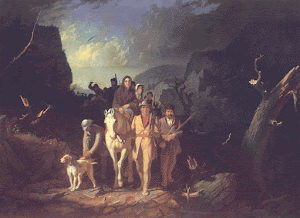












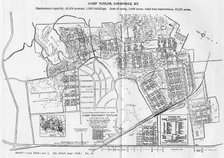
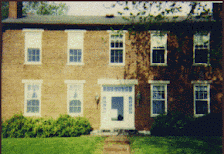

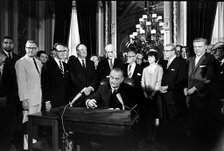

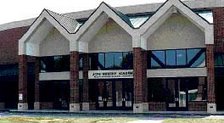


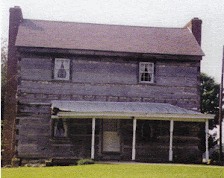
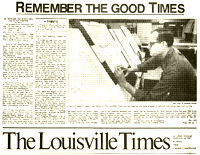

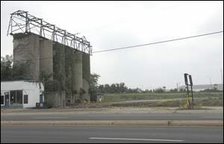
2 comments:
Excellent article.
What a wonderful parallel and so many facts that create a mental image. Good job as always.
Post a Comment